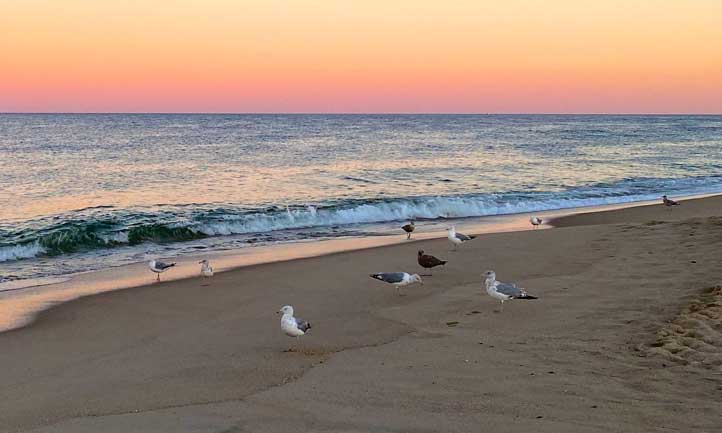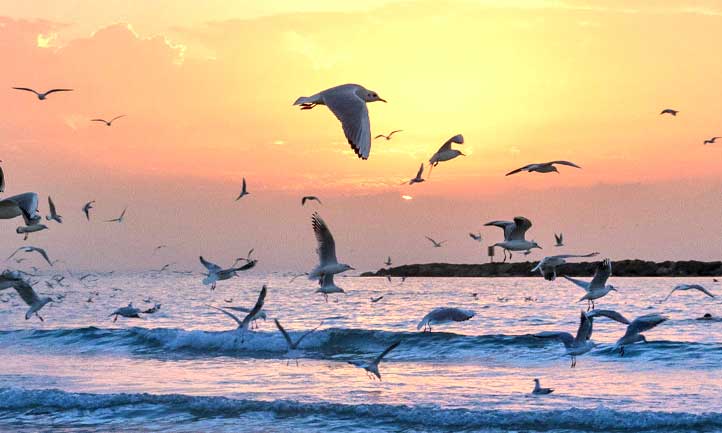Grief Is.
Author: Augusto Cespedes
Grief is a memory— a deep thought you once tucked away and wished a hundred, million times was a fleeting moment.
Valentine’s Day, 2007, early evening, Haqlaniyah, Iraq — Danny Morris was the last one of my three best friends I had to say goodbye to.
Grief is a nightmare — vivid, living, beating, haunting, but part of you doesn’t want to wake up.
Confused and broken, I replayed his death over and over in my head, exhaustingly dissecting it like it was going to change things. But it was only day one of a week-long operation.
“Finish the mission,” the radio blared, “CO’s orders.” The same questions repeated themselves in my head: Why? Why not me — why did I survive?
Time elapsed, my deployment ended, and by June 2007, it was my time to change duty stations.
Grief is a statement — formulated words of what the heart feels, impulsive, irrational, greedy — temporary relief just to relive it all over again.
“Get me as far away as possible from this island,” I said, having been in Hawaii since November 2004.
“Fargo, North Dakota?” I just nodded — the further away, the better. “Really? Scandinavia?” they laughed, “that’s extreme, Cespedes.”
“Ever been to the East Coast?” a colleague asked. After several weeks, I decided: Lakehurst, New Jersey. I packed my bags and left Oahu, never looking back.

Grief is a promise — a series of thoughts under your breath just for you and the one you lost and love. You mumble, stop, and start all over, again and again, just to get it right.
During the plane ride over the Pacific, I rested my head on the window, feeling the cool sensation of the atmospheric air just on the other side.
“I am going to live my life for them. Whatever it takes.” I felt an insurmountable amount of guilt about surviving Iraq, and the more I thought about it, the more it haunted me that my friends died at such a young age. We were all boys with aspirations.
“Virginia State Police,” Danny would tell me during our downtime.
“I think I’d want to go back to school. I owe it to myself,” Heath and Matt would each say.
I constantly thought about that — their voices in the background. I eventually forced myself into nursing school and, miraculously, completed it. But I didn’t stop there. I had my eyes on my bachelor’s. I was pursuing a busy life, chasing a promise to myself that I couldn’t break.
Grief is the desire to climb — to endure the pain, wipe the tears, lift our heads, keep moving, and never look back.
For years, I kept myself busy — busier than most — working 12-hour shifts and posting college discussions at odd hours of the night. It was the pure adrenaline of it all that put my next foot forward, always coming back to the plane ride, the promise.
There were moments I’d see their faces — smiling, laughing, as we sat against the cement walls of houses. Even in the middle of the night, unable to sleep, we’d talk about our childhood memories and lifelong dreams — distant ideas to pass the time and keep us alive. A moment later, I’d open my eyes and snap back, the weight of guilt again hanging over me, “I’m alive because of them. I have to live my life for them.”
Grief is a routine — an over-and-over sort of thing — a repetitious, lingering cycle.
That promise got me through. Hours seemed to mesh together. Feelings of Groundhog Day stacked up, but I was pushing something away. I was hiding from it all..

Grief is the void we are forced to place behind a life we are told to make.
It was easier to cover it and place it behind the busy, chaotic life I achieved. Supportive comments, like, “You’re crushin’ it out there, man,” made it so simple to keep it behind me.
Then I got used to it, numb to it. At almost 30 years old, I felt like I had it mostly put together. That constant reminder — the promise I made to myself before I left Oahu — saw me through multiple degrees and years as a nurse. So why change now?
I thought once I earned my master’s, that life was going to be easier — less travel, a schedule that better fit my family. The long-term goal I strived for was accomplished. And that was when it all came crashing down..
Grief is change. It’s difficult, harsh, bitter.
I was angry and increasingly irritable. Given any opportunity to isolate, I would.
“Can you come out and be with the rest of us?” someone would politely ask during Christmas, but they knew I had a difficult time. As I settled into my new role as a nurse practitioner, the adrenaline-filled, chaotic life dissipated into the life I always wanted, but wasn’t prepared for.
“Dad? Are you OK?” my oldest daughter asked months later, peering from behind the door, dressed and excited for her first day of kindergarten. I couldn’t bear the thought of her growing up anymore. The indescribable feeling weighed on me.
It was then, that my wife — my biggest supporter from the very beginning — put her hand on my shoulder as I sat on the tile bathroom floor and gently said, “You need to see someone.”
So I did..
Grief is surrender, a “knowing.”
Not knowing where to turn, I remembered seeing the number for the VA’s Crisis Line on their website, so I called. They helped point me in the right direction, and after a few conversations, I drove to the nearest VA hospital and sat down with a psychiatrist.
I felt defeated. Deep down, I felt like a complete failure — in total shock. As the psychiatrist spoke, the volume of her voice muffled in distinct waves, in and out, as I tried to pick apart the last 15 years. But I just stared blankly at the brochures and the psychology books neatly placed on her bookshelf. How did I do it all? What did I do wrong? Am I missing something?
Later, during my first telehealth appointment, the psychologist asked a simple question, but one I’d never heard, “Do you love yourself?”
It went silent. I couldn’t answer it. For several seconds, there was ringing in my ears that seemed to be the only thing reacting. I logged out of the appointment, wiped my tears, and went back to work. Whether it was the word “love,” a sense of relief, or a revelation, I couldn’t answer it.
I loved my wife, kids, and the life that we had built together. I loved seeing my wife as a mother, portraying a love I never thought I’d be able to witness. I loved seeing my daughters smile and laugh over the silliest things — the things that kept me going year after year.
But I didn’t love myself..

Grief is a revelation.
For 15 years, I’d been determined to “live my life for them” — obtaining degrees, growing my paycheck, buying a house, chasing the next best thing. My motivation to build the life I had was born from that promise on the plane, but I never gave myself a chance to grieve.
“I’m fine. I don’t need to think about it anymore,” I’d always mumble to myself.
I never allowed my heart to open, embrace my grief, and mend. I hid my grief and love for myself behind the busy life I had yearned for. The act of loving myself and being able to grieve was so foreign to me.
Grief is another day.
On an early evening in late August, I sat on the beach of Sea Bright, a familiar place we’d go as a family. It was a beautiful day with intermittent periods of crisp, whispering air dancing along the shore. The sun, a warm, radiant ball of light, sat alone in a sky the shade of baby blue eyes — a perfect conclusion to summer.
As I zipped up my sweatshirt, a breeze caught me under my chin causing me to glance up from watching the seagulls scavenge for food.
The sun was now a glowing ember, providing its last moments of warmth as it laid down to rest. It was the blending of soft, magnificent colors of day and night that I couldn’t stop staring at. And it was then that I noticed a speck of an early moon had appeared — a tiny, white pearl in the distance.
I’ve never seen it that way — not like that — pure contrast existing in perfect unity in the same sky. The sun and the moon together were breathtaking.
Through moments of heavy, melancholic energy generated by the roaring of waves, I finally understood that I could grieve — that grief is a natural, powerful human emotion purely driven by love.
Day and night had paused for me to see them both together, in perfect harmony. And as day and night harmonized in that moment, grief and healing, together, can exist..
Grief is…
By: Augusto C. Cespedes: Augusto served as a platoon corpsman with the 2nd Battalion, 3rd Marines from 2004 to 2007. He holds a Master of Science in nursing and currently lives in New Jersey with his family where he works as a nurse practitioner. His first book, "Just Glow, A Memoir", will be released in 2024. You can follow his writing journey on Facebook at "Author - Augusto C. Cespedes, Jr.” He honors the lives of Pvt Heath D. Warner, U.S. Marine Corps; HN(FMF) Matthew G. Conte, U.S. Navy; and LCpl Daniel T. Morris, U.S. Marine Corps.
Photos: Augusto Cespedes and Pexels
